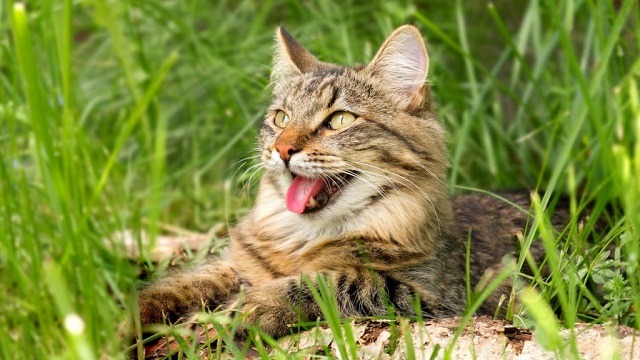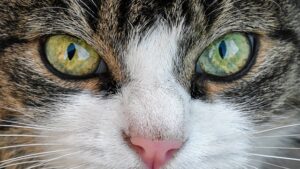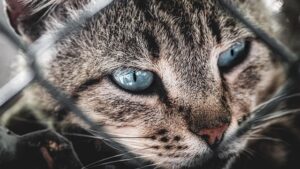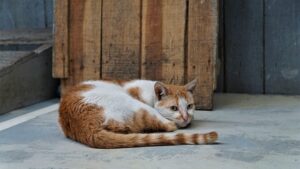Cat Panting: Normal or a Sign of Trouble?
Have you ever seen your cat panting and wondered if it’s normal? While panting is more common in dogs, cats can also pant for various reasons.
As a cat parent, it’s essential to understand what panting means… And when it could be a sign of something more serious.
- Cat panting is unusual and may indicate health issues; it's crucial to monitor for discomfort or distress signs.
- Panting can be caused by heatstroke, respiratory problems, stress, or heart disease; consult a vet if symptoms persist.
- Short panting episodes during stressful situations are usually normal but watch for severe or prolonged panting.
- Ensure your cat stays cool and comfortable to prevent panting due to heat or anxiety; veterinary advice is important.
Understanding Cat Panting: Causes and Symptoms
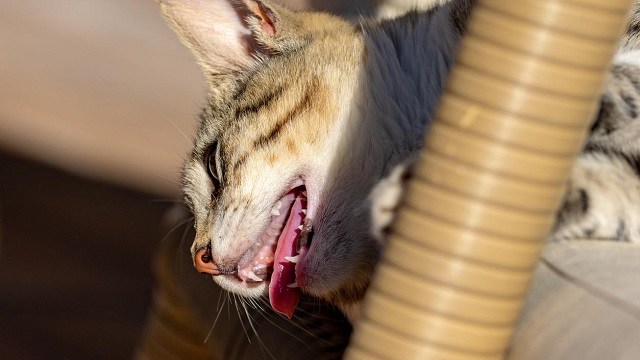
Panting in cats is not a typical behavior. Unlike dogs, cats don’t pant to cool down. So, if you notice your cat panting, it’s crucial to monitor for other signs of discomfort, distress, or ill health.
Some common causes of cat panting include:
- Heatstroke. This occurs when a cat’s body temperature rises above the normal range due to exposure to high temperatures. Panting due to heatstroke is usually accompanied by other symptoms such as excessive drooling, vomiting, and lethargy.
- Respiratory problems. These can include feline asthma, pneumonia, or lung cancer, which can cause panting, coughing, and wheezing. Panting due to respiratory problems may also be accompanied by other symptoms such as difficulty breathing or rapid breathing.
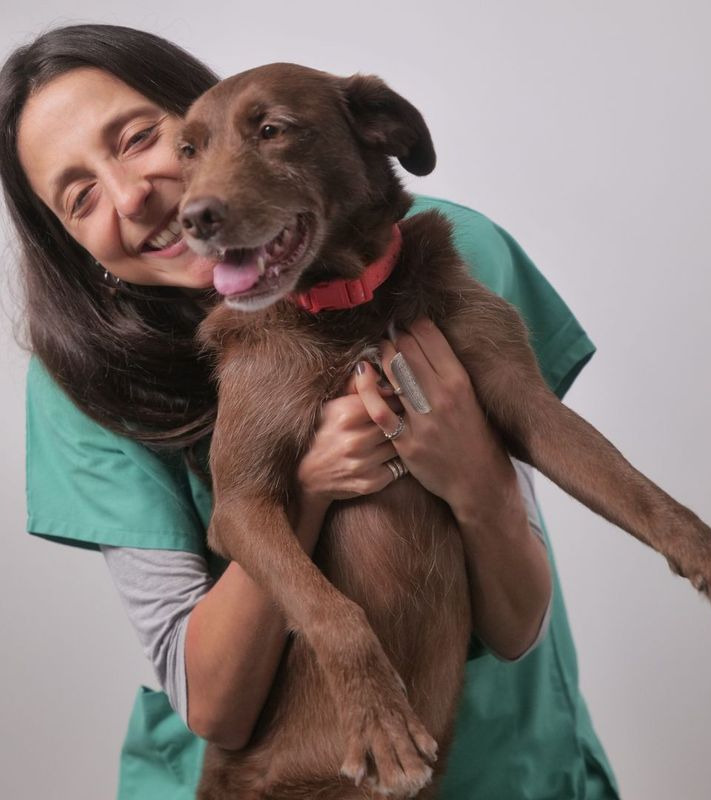
Is Maven right for your pet?
Take the quiz and see how Maven can support your pet’s wellness journey.
- Stress or anxiety. Cats may pant due to stress or anxiety, especially during or after a stressful event. Car rides or a visit to the vet are a couple of examples. Panting due to stress or anxiety may also be accompanied by other symptoms such as hiding, trembling, or excessive grooming.
- Heart disease. Cats with heart disease may pant due to reduced oxygen supply to the body. Panting due to heart disease may also be accompanied by other symptoms such as lethargy, difficulty breathing, or bluish gums.
It’s essential to note that panting in cats may also be caused by other conditions. It’s best to consult with a veterinarian if you’re unsure about your cat’s symptoms.
Panting and Cat Health: When to Worry
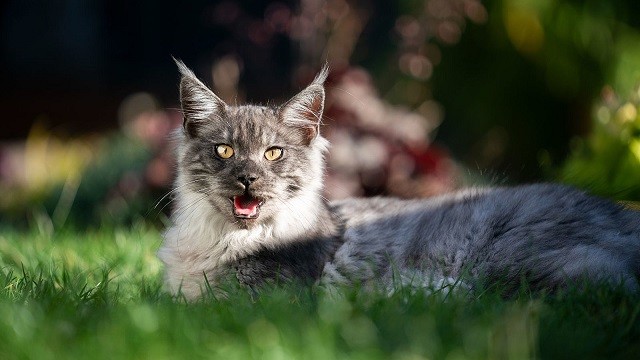
While panting in cats may not always be a cause for concern, it’s essential to know when to worry. Cats may pant for a short period during and after a particularly stressful or frightening event, but their breathing should quickly return to normal.
So, if your cat is panting heavily or for an extended period, it could be a sign of an underlying health problem that needs to be addressed. At this time, it’s vital to monitor for other symptoms like vomiting, lethargy, or diarrhea. If any of these are observed it is essential to seek veterinary care immediately.
Additionally, if your cat has a history of heart disease or is showing signs of heart failure such as rapid breathing, coughing, or bluish gums, emergency veterinary care may be needed.
Helping Your Cat Stay Cool: Tips for Managing Panting
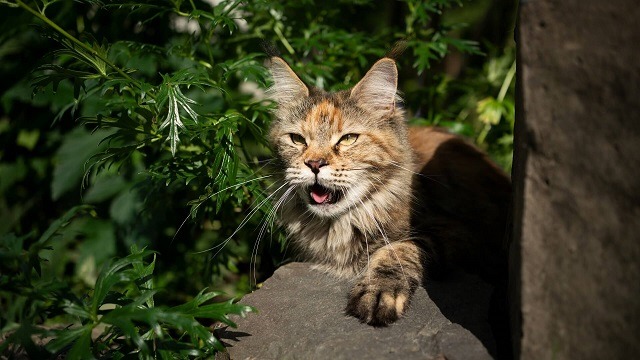
While panting is not a typical behavior in cats, it can occur during hot weather or stressful situations. To help your cat stay cool, provide them with plenty of fresh water and access to a cool, shaded area. You can also place a fan or air conditioner in the room to help regulate their body temperature.
If your cat is panting due to stress/anxiety, try to identify the source of distress and eliminate it if possible. You can also provide your cat with a comfortable and familiar environment, such as their favorite bed or toys, to help them feel secure. Try to leave your cat undisturbed during this time, and observe them from a distance.
In summary, cat panting is not a typical behavior and can be a sign of an underlying health problem. As a cat parent, it’s crucial to observe your cat’s behavior, and look for other signs of discomfort, distress, or ill health.

Maven Pet
Health Monitor
#1 Vet-recommended pet monitor! Tracks activity, rest, respiratory rate, water intake, scratching and other health indicators 24/7
If you notice any unusual or concerning symptoms, it’s always best to get them checked out. And remember, if you need any help deciding whether your cat needs to visit the vet clinic, Maven’s monitoring can help!
Maven Pet focuses on improving the quality of life of our pets with technology, using artificial intelligence (AI) to enable proactive pet care. By accurately collecting and monitoring pet data 24/7 and flagging any irregularities, Maven Pet empowers pet parents and veterinarians to stay ahead of potential health issues, ensuring the well-being and longevity of our beloved companions.

